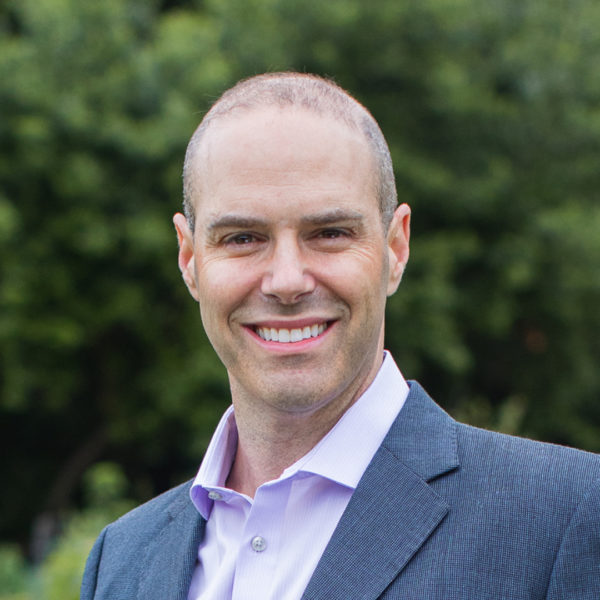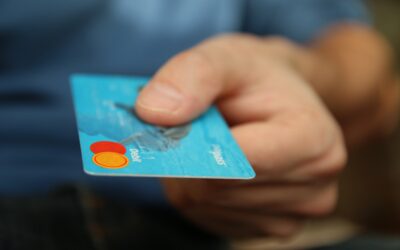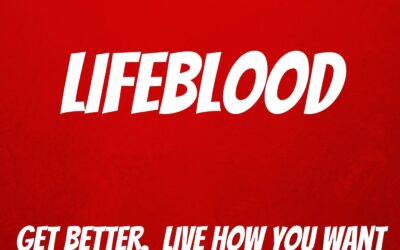Get Healthy Stay Healthy with Dr. Judson Brandeis
Is waking up with an erection a good or bad thing? Dr. Judson Brandeis answers that question and much more!
Listen to us On
About the Episode
LifeBlood: We talked about how to get healthy and stay healthy, male reproductive and overall health, how bodily function in one area can be a predictor for other areas, and how to make your physician your partner in health with Dr. Judson Brandeis, award-winning urologist and sexual medicine expert, clinician and surgeon, and author of The 21st Century Male.
Listen to learn if waking up with an erection is a good or bad thing!
You can learn more about Judson at BrandeisMD.com, Facebook, Instagram, YouTube and LinkedIn.
Thanks, as always for listening! If you got some value and enjoyed the show, please leave us a review wherever you listen and subscribe as well.
You can learn more about us at LifeBlood.Live, Twitter, LinkedIn, Instagram, YouTube and Facebook or you’d like to be a guest on the show, contact us at [email protected].

George Grombacher
Lifeblood Host

Dr. Judson Brandeis
Guest
Episode Transcript
george grombacher 0:00
Come on Wanderlei Blood This is George G and the time is right welcome today’s guest strong the powerful Dr. Judson, Brandeis Judson. Are you ready to do this? Absolutely. Alright, let’s let’s go. Dr. Judson is an award winning neurologist and sexual medicine expert. He’s a clinical researcher, physician, educator, caring clinician and surgeon and he is the author of the 21st century man, Jetsons tell us a little about your personal life. It’s more about your work and why you do what you do.
Dr. Judson Brandeis 0:43
Great. Well, thank you so much for having me on the podcast. I really appreciate the opportunity. And just a little bit about myself. First of all, I live in the San Francisco Bay Area with my wife of 21 years and our four teenage children. I grew up on Long Island, went to college at Brown University Medical School at Vanderbilt. Then I did a Howard Hughes sponsored research fellowship at Harvard Medical Center, and then a surgery and then a urology residency at UCLA. I now practice general urology in Walnut Creek in California for the past 18 years where I was voted the top urologist in the San Francisco Bay Area for the past eight years, and I was chief of Urology at my local hospital and local HMO. But about three years ago, I decided to sub specialize in male sexual and regenerative medicine. And now I see patients perform clinical research, develop supplements and devices and write books.
george grombacher 1:37
Nice. Well, I think that’s awesome. 21 years of marriage and four teenage kids. Congratulations on that.
Dr. Judson Brandeis 1:48
All Thank you very much.
george grombacher 1:49
All right. So the the challenges of well, I has had have the sexual challenges for men, has that been getting better or worse?
Dr. Judson Brandeis 2:06
Absolutely worse. In fact, I was just in Arizona at the Sexual Medicine Society meeting, where they did a review and found that the incidence of erectile dysfunction after COVID increased by 20%. So COVID actually causes vasculitis and that vasculitis for inflammation and blood vessels resulted in erectile dysfunction.
george grombacher 2:30
My goodness, and before COVID How has it been trending?
Dr. Judson Brandeis 2:36
It’s trending up. I mean, there’s an increase in obesity, an increase in sedentary lifestyle, all these things that contribute to erectile dysfunction. And in general atherosclerotic disease or blocking of blood vessels. You know, erections are a function of circulation. And anything that gets in the way of circulation really gets in the way of erectile function.
george grombacher 2:59
Got it? And so, you had the opportunity to, obviously, you’re a very smart person, you had the opportunity to to pursue any kind of medicine, what was it that led you to urology and to male sexual health?
Dr. Judson Brandeis 3:16
Yeah, I had a kind of an interesting long path. So after undergraduate I went to American Red Cross and did research on kidney transplantation and cryopreservation. So I actually worked for a guy named Harold T Merryman who figured out how to freeze blood. He was really an amazing guy, think about how many people’s lives he saved. And then during medical school, I actually did research in the the Merrill and Murray lab, where they figured out how to do the first successful kidney transplantation was at Harvard Medical School, they also helped develop dialysis. So that really inspired me to do research. And then, when I was at UCLA, I did research with Mark Litwin, who’s kind of the father of quality of life research. I became really interested in kidney transplantation went to UCLA to learn TR. I became interested in general urology in surgical robotic UCLA and then helped pioneer surgical robotics when I got out in private practice. And then about three years ago, I really became fascinated with the regenerative treatments for erectile dysfunction. So, you know, you can take Viagra. And actually Viagra was kind of discovered the mechanism of action with Viagra was discovered by some of my professors when I was at UCLA. But wouldn’t it be great if we could actually help improve the underlying blood flow issues that men with erectile dysfunction have? And for the first time, we actually can. So with the low intensity shockwave therapy, and platelet rich plasma and possibly exosomes are stem cells, we can actually rebuild blood flow to the app really fascinated me, because erectile dysfunction is such a difficult problem for men, both physically and psychologically.
george grombacher 5:19
Certainly appreciate that. So as as we age, is it a natural thing for blood flow to be to be released? So as a man gets older, is it normal to make it harder to get it make it more difficult to get an erection?
Dr. Judson Brandeis 5:38
Yeah, well, as we get older, it’s more difficult to do everything. You know, when patients come to my office, I have a graph that shows the world record for the 100 meter freestyle and swimming. And it’s relatively flat between the ages of 20 to 60. And then after 60, the slope increases. And then after 80, the slope increases again. And so if you look at muscle between the ages of 20 and 40, there’s not much decline in muscle mass and men between the ages of 40 and 70. There’s about an 8.8% decline per year and muscle mass and after the age of 70, that increases to 1.5. Age, we obviously physically decline now, if you look at blood flow, it’s really interesting. Nighttime erections are really critically important. So when you wake up in the morning, do you get an erection in the morning? Yes. Okay. And that’s great. And did you ever think about why you do?
george grombacher 6:39
I’m never super. I’ve never gone deep on that to figure out why.
Dr. Judson Brandeis 6:45
Yeah, well, the reason you do is that, that’s how you keep your penis healthy. Right? So, during the day, you know, especially as you get older, and you have jobs and kids and stress and whatever, you’re not having sex during the day, right. So there’s really not a lot of reason to get erections during the day. And, you know, if you are married for more than 20 years, you’re not having sex every night. So, when do you actually get erections and time you get erections is at night when you’re asleep, and you’re supposed to get three to six erections every night, each of those erections lasts for about five or 10 minutes. So you’re supposed to get 30 to 60 minutes of erections every night. And what that does, is it brings oxygenated blood into the penis, right, and that prevents fibrosis, or scarring of the inside of the penis. And also it stretches the penis, right? Because the penis normally is, I don’t know, two, three inches, four inches, whatever, maybe in your case, 12 inches, but, you know, not all of us are as lucky as you, right. And then when you get an erection at night, it goes to on average, the the male penis in the United States is 5.1 inches. In the Congo, it’s 7.1 inches. And in North and South Korea, it’s 3.8 inches. So, you know, we’re where we happen to live, we want to reach your full potential, but what that does is it keeps the penis healthy. Okay, so the really the first indication that blood flow is beginning to decline is that you’re not waking up morning, with an erection or as frequently. And that’s a really important first step, okay, because the blood vessels to the penis are one to two millimeters in size, the blood flow to the heart is three to four millimeters in size. So really, erectile dysfunction precedes cardiovascular disease by about five or 10 years. And there are a number of studies that show that the development of full blown erectile dysfunction where you need to take pills in order to improve erectile function. About 20% of those patients within five or 10 years will have some sort of major cardiovascular event. And so if I see a guy in his 40s, with erectile dysfunction, especially if they have a family history of heart disease, especially if they have risk factors, like diabetes or smoking, especially if they have a risk factor of being Indian or South Asian, right there. I didn’t know this until recently, but they have a much higher incidence of cardiovascular disease. I’ll send them for a coronary calcium score, I’ll send them to their cardiologist. And I can’t tell you how many men’s lives I’ve really saved by a simple intervention like a cardiac coronary calcium score, where I’ll pick up you know, a cold cardiovascular disease meaning that heart disease that wasn’t realized or appreciated based on the fact that they developed erectile dysfunction why I didn’t think that They should. So it’s I think one of the key points to take away from this is, if you develop erectile dysfunction, take it seriously, because in five or 10 years, if you don’t do anything about it, if you don’t make any of the life interventions that are mentioned in the 21st century, man, you may be looking at a much bigger problem.
george grombacher 10:23
Morning interaction serves as the canary in the coal mine to bigger problem really? Yeah. Alright, so we talked, so you, you, you wrote this wonderful book, 900, pages, 100 some chapters, and it’s filled with these interventions that we can do. And I think with with all things, human improvement, and being healthy, the more integrated we can really the better. What our I hate to ask for Greatest Hits, but what are some of those interventions?
Dr. Judson Brandeis 10:57
So, you know, that, honestly, George, there’s never been a men’s health book written like this. It’s really the most comprehensive, and medically accurate book, because the thing is, I know that I don’t know everything about everything. But I do know, a lot of people, I have a network of people that I send my patients to when they have problems. And so this book really covers every aspect of Men’s Health, from the top 10 things that cause us to die, including a chapter on stupid things that men do to cause themselves to get brought to the emergency room. Right, written by Malcolm Johnson, who’s emergency room physician, right? Accidental Death is the number three cause of and simple things like putting safety goggles on when you’re using your bandsaw, your salzano will present prevent 90% of eye injuries, wearing gloves, present, prevent 50% of hand injuries. So even just, you know, the thing is guys think of like, we think we’re invincible, right? Think we can do everything. And maybe when we’re younger, we can do that. But you get to a certain point where the reflexes aren’t as good, your muscular strength isn’t as good, your balance isn’t as good. And there are things that you used to be able to do that you can’t do anymore. And you have to admit to yourself, that maybe you shouldn’t go up that ladder to put up the Christmas lights 1000s and 1000s of men’s lives are destroyed every year through accidental falls. This book is just you know, it’s it’s so hard for me to kind of give people Greatest Hits, because there’s so much information packed into this book, but there really two themes that go through the book. Okay. One theme is the theme of my medical practice, which is I help men feel better, look better, and have better physical intimacy. Right. And this book is packed with chapters that really focus on those three themes. The other is the hero’s journey. So most men know, don’t drink alcohol to excess, don’t smoke, don’t do drugs, don’t get fat, exercise every day. Meditate, stretch, okay. But the our lives get in the way of that there’s life stress, that’s relationships, stress, etc, etc. And so there’s a there’s a book and a kind of a concept called the hero’s journey, meaning that each man has to look at his own life as a hero’s journey. Right? You don’t want to look at Tom Brady as he as your hero, or Michael Jordan, as you’re here, right? They got their own problems, right? You got to look at your own problems, your own challenges, and see yourself as the hero of your own journey. And once you begin seeing yourself as the hero of your own journey, then the decisions that you begin to make, begin to matter and have consequences. Right? You know, you’re the hero to your kids, you’re the hero to your spouse, you’re the hero to the people that you work with people in your community, the people in your church, your temple or your you know, whatever. And if you begin to see your life and your decisions as heroic decisions, then you know, maybe you won’t smoke, maybe you won’t have that third or fourth or fifth or sixth sixth drink, maybe, you know, you’ll go out and exercise that day. And so, really the 21st century man is just so chock full of, of information really written for men in a way that men can understand and digest. Because the problem is, we’re half as likely as women to go to the doctor. Half of us have high blood pressure 40% of us are obese, 15% of us smoke 12% of us don’t even have health insurance. Okay, men don’t take care of themselves, it’s just a fact. And if you want to go through your hero’s journey and succeed in life, you have to take care of yourself both physically and mentally. There’s a huge amount of information in this book on mental health, on relationship health. And, you know, the 21st century man is a way for you to live your own hero’s journey without allowing avoidable health problems getting in the way of that.
george grombacher 15:45
I love it. I think that’s, I think it’s so true. And obviously, you know it to be true. But I think it’s, it’s so true that we need to, we need to as individuals, as as, as a man, value ourselves enough. And recognize that it’s super important for all the people around us, as he touched on all the people that that we’re working to serve, and protect and love and all those things, that they need us to be as optimal, as optimized as as as we possibly can. And there’s a big shift that needs to happen, because we’re just not doing that.
Dr. Judson Brandeis 16:28
Yeah, and you know, they want to help us. So many men, there’s this ethos that like, we’re strong, and we can take care of ourselves, and no one needs to take care of ours. But that’s BS, you know, I’m sorry to sort of, but I’m kind of a blunt person. And I’m blunt with my patients, too. You know, that’s BS, you have to learn how to take care of yourself, you have to learn to allow the people in your life to help take care of you, you have to develop a relationship with your physician, there’s a whole section of the book developed, you know that in the book on how to choose a physician, there’s a whole section on how to understand health insurance, there’s a whole section on how to work with your physician, right? There’s a there’s a study by a medical record company called Cerner, you have 16 minutes and 14 seconds on average with your doctor, they looked at 100 million charts, right? That’s a big sample size, you got 16 minutes. So don’t go to your doctor and talk about the weather and about the you know, the football game. Because you’re wasting valuable time, you need to go in there prepared. And the in this chapter in the book, it teaches you how to be prepared to get the most out of that 16 minutes with your doctor.
george grombacher 17:48
That’s super powerful, right there. And that’s, that’s certainly been on my mind, I’m 43. And I keep getting older. But I recognize that I do need to I do you need to develop a better relationship. So I’m excited to dig into that chapter. Because I don’t know what I don’t know which which, which is a lot. And so to be able to maximize, to be able to do the work up front to know okay, here’s the information that I want to cover. And I’m sure that it gives us instructions and information on how to best articulate that and share information.
Dr. Judson Brandeis 18:23
Absolutely, you know, your doctors want to help you. And we’ve been, we went to undergraduate, you went to medical school, we did residency, but you’re a partner. And we need your input. And we need your help to maximize the time in that visit, because doctors are under a lot of pressure. We haven’t gotten a raise for Medicare in about 2025 years. And so what do you have to do, you have to see patients faster. You know, I left that system because I just, I don’t feel good at the end of the day, spending only 16 minutes with patients I like creating a personal relationship with patients where I, I learn all aspects and and this brings me to another super important point, which is there was a study called the Harvard longevity study, where they followed men for 75 years, and they followed their families and their families families. And, and they there was a group of Harvard students and a group of kids from Southie, which is kind of lousy side of Boston. And the main conclusion of that study, that’s the largest longevity study ever undertaken is that the quality of a person’s relationships is the most important factor in their overall health and happiness in life. And this book, the 21st century man has a whole section, really outstanding section on mental health, on depression and anxiety on work life balance, which is something that I saw i i started With all the time in fact, I wrote a little sidebar, I call it the work life pendulum. Because the work life balance is a ridiculous concept like, I’ve never in my life said, wow, you know, today I perfectly balanced work and family life. Now it’s either too much work, or too much fat, not too much family life but you know, not enough time at work, you know, to achieve my financial goals, right? There’s and then there’s amazing chapters on relationships written by therapists, we have a divorce chapter written by a prominent divorce attorney Armen brought is an expert on fatherhood, he’s written to a sold 2 million books on fatherhood. There’s an incredible chapter on fatherhood. So all these things, you know, a lot of, there are a few Men’s Health books out there that are that are decent, but none of them really addresses mental health and relationship health. And to get life right. And to live a long, happy, healthy life. You have to have successful relationships and mental health.
george grombacher 21:06
Well said. Dr. Judson, thank you so much for coming on. Where can people learn more about you? And where can they get a copy of the 21st century man?
Dr. Judson Brandeis 21:16
Oh, that’s a great question. My one of my favorite questions. You know, I labored and suffered over this book for for two years, and I, there are 60 top tier medical professionals and men help men’s health experts in this book. There’s really nothing like this book. And so if you go to the 21st century, man.com, just written out that way, the 21st century man calm you, that’s the website for our book. It’s available on ebook. It’s available as a hardcover. And it’s available pretty soon as an audiobook. Because I want you know, some men commute. Some men fly on planes, and they need an ebook. And it’s hard to take a five pound book on an airplane. And some people like holding a book in their hand. And then to learn a little bit more about me and my medical practice, you can go to Dr. Brandeis, Dr. Brandeis B, as in boy, ra n d, I s.com. And then I have a supplement company, top tier supplements in the men’s health and sexual medicine. And that’s a firm science dot. And then I have a really, really good YouTube channel. So I travel the country, teaching physicians about sexual medicine, male rejuvenation. And so if you go to Brandeis MD on YouTube, I have playlists like the men’s medical, sexual health curriculum, and information about testosterone or information about physical rejuvenation. And so, you know, in closing, for the men out there, you got to take care of yourself. No one else is going to take care of you. You got to learn how to take care of yourself. You need to think of yourself as the hero of your own life. You’re undergoing your hero’s journey, and you can really maximize what you get out of life by taking care of yourself and you deserve it. So all the best on your hero’s journey, George all the best on your own individual hero’s journey. And I really appreciate you allowing me to speak to your audience.
george grombacher 23:35
Love it. If you enjoyed this as much as I did show Dr. Judson your appreciation and share today show the friend who also appreciates good ideas pick up a copy of the 21st century man at the 21st century mad calm. Find information about his practice at Dr. at Brandeis calm Dr. br a nd s.com Go to affirm science comm for the supplements and find him on YouTube at Brandeis MD will list all of those in the notes of the show. Thanks again. Dr. Great, thank you. And until next time, keep fighting the good fight. We’re all in this together.
Transcribed by https://otter.ai
More Episodes
The Future of Live Events with Ed Vincent
The Future of Live Events with Ed Vincent Love concerts and live events, but hate high fees and charges? Ed Vincent is working to revolutionize the way we pay for and access live events! About the EpisodeLifeBlood: We talked about the future of live events, the...
How to Be an Ally with Ash Beckham
How to Be an Ally with Ash Beckham Want to be an advocate for marginalized people, but don't know how? Ash Beckham shares her experience into how to be an ally! About the EpisodeLifeBlood: We talked about how to be an ally, what it means to be an advocate, how to...
How To Improve Your Credit: A Step-By-Step Process
Improving and maintaining your credit is an important step on your path to financial success. Credit is an integral part of our lives that can impact where we live, the kind of car we drive, and even where we work. Having good credit can bring down the costs...
Becoming Your Own Banker with Nick Kosko
Becoming Your Own Banker with Nick Kosko Have you ever thought there was more to the financial world than simply traditional stock market investing? Nick Kosko shares his story of searching for more, finding strategies that made sense and putting them into...
How to Find a Career You Love with Kathy Caprino
How to Find a Career You Love with Kathy Caprino What's keeping you from reaching your ultimate potential and finding a career you love? Kathy Caprino shares her expertise and research into the 7 gaps that many of us have and what to do about it!About the...
the Future of NFTs with Jesse Krieger
The Future of NFTs with Jesse Krieger You've heard of them, but what will the practical uses be and what's the future of NFTs? Jesse Krieger breaks down how authors and creators will tell this tech and what it will mean for consumers!About the EpisodeLifeBlood: We...
Debt Collection with Taylor Kosla
Debt Collection with Taylor Kosla What are your rights as a consumer regarding debt collection? Taylor Kosla shares her expertise into how to protect yourself from aggressive collection agencies!About the EpisodeLifeBlood: We talked about debt collection, consumer...
Impact Investing with Rebecca David
Imact Investing with Rebecca David Have a passion for social causes or other issues we're facing as a people? Rebecca David shares her experience and expertise into how you can begin to have a positive impact on these importa causes by how you invest your money!About...
Weight Loss Diet with Rocky Haire and Valerie Maclin
Weight Loss Diet with Rocky Haire and Valerie Maclin Wherever you're currently at, is it possible to lose weight and start living a healthy and sustainable lifestyle? Rocky Haire and Valerie Maclin think so and have developed a program around breaking the addiction...
Join the show.
Interested in being on the show? Tell me a little bit more about you and what you’d like to talk about!









